Responding to EUDR requirements: Who Is responsible for what?
Written by Vasileia Fanarioti and Carolina Pirola
The EU Deforestation Regulation (EUDR) is set to become a pivotal piece of legislation for the coffee sector, impacting every part of the supply chain, from producers to roasters. Starting as early as January 2025, coffee and other commodities linked to deforestation will be banned from entering European Union member countries unless there is proof that they do not originate from deforested areas.
While importers are primarily responsible for providing the documentation to the EU, other stakeholders – including exporters, cooperatives, and producers – must contribute significantly to data collection. It is well known that many of them face challenges in adapting to the technological and administrative demands of EUDR compliance because they simply lack the tools to collect and store the required data. But another significant, yet preventable, hurdle for compliance is receiving less attention – uncertainty surrounding who is responsible for the different areas for compliance. Should government agencies support producers with data collection? Must buyers take the lead instead? Who is responsible for verifying the information provided to the EU?
Image created using photos by Canva
The complexity of sharing data
The industry largely agrees that one of the most pressing issues is the disproportionate burden placed on producers. Kate Monteiro, Director of Sustainability at green coffee importing company Falcon Coffees, highlights that while the legal liability for compliance lies with importers, the actual work of data gathering falls heavily on producers. "The supply chain has largely asked producers and exporters to bear this burden, with no incremental financial compensation for that investment on the horizon," she remarks, highlighting a critical imbalance in the compliance framework.
The lack of definite guidance from the EU on the implementation of the legislation remains a significant challenge. While the Regulation mandates that importers conduct the due diligence process, this requires substantial quantitative and qualitative information from suppliers. Yet fragmented efforts and lack of clarity surrounding who should be economically responsible for collecting it hinder progress and efficiency.
According to a CGIAR report that looks at the Honduran coffee sector, multiple technical issues must be addressed before compliance can be proven. On one hand, intermediary actors play a pivotal role; however, integrating their databases with others’ digital systems presents unresolved challenges. This sentiment is echoed by Juan Pablo Solís, Senior Advisor for Climate and Environment at product certification organization Fairtrade International: "The one thing all stakeholders share as a common constraint is how data can be stored in a transparent way and properly transferred from one actor to the next."
On the other hand, while pilot projects have received support for fieldwork and training, uncertainties persist regarding stakeholders' roles and transition costs from pilot phases to full-scale implementation. As outlined in a recent FAO report, despite strides in integrating digital tools, many smallholder farmers face economic strain, complicating the process of longer-term compliance. If no plans are designed to guarantee support for first-mile actors and other stakeholders in the post-piloting phase, these initial efforts will end up being in vain.
Duplication of efforts and uncertainty about accepted data
Another significant issue complicating the compliance landscape is the ambiguity regarding who is responsible for verifying the data that will then be uploaded to the EUDR Regulatory Platform. This uncertainty has led to a duplication of efforts, with various stakeholders collecting overlapping data sets without clear coordination. According to Monteiro, exporters, importers, and large commercial roasters frequently end up independently investing in technologies to analyze the same supply chain. For example, the FAO report notes that ANACAFE, AGEXPORT, FEDECOCAGUA, and FEDECOVERA are currently trying to align traceability mechanisms with EUDR requirements in an effort to streamline the process of sharing data among stakeholders. These collaborative efforts, however, seem to be highly fragmented and uneven across the board.
This issue is further complicated by uncertainties about the EU's acceptance of various systems. "We are now approaching June, and the EU has not provided a preferred 'map of record' or satellite or technology of choice. Organizations are investing a lot of money into options they believe are appropriate, but this is an educated guess. The risk of investing in technologies that might not align with future EU standards creates uncertainty and potential financial losses for companies," Monteiro notes.
Moreover, the lack of clarity on the amount of data required beyond geolocation to satisfy due diligence requirements exacerbates compliance challenges. Solís underscores that while much attention has been focused on the guidelines for verifying deforestation-free status, there remains ambiguity regarding the breadth and depth of data needed to demonstrate adherence to various legal requirements at the national level. “Stakeholders are wondering how much data (beyond geolocation data) is needed to provide sufficient evidence of the legality factor. There are issues with the technical specificities with the due diligence process that will require significant adjustment in the operations of all value chain actors.”
Prioritizing systematic support
The implications of EUDR compliance extend beyond the immediate challenges. There is a real risk of market access constraints for smallholder farmers, which could lead to significant economic repercussions. Many producers, especially those selling to intermediaries, remain unaware of the details surrounding the Regulation, further complicating the compliance landscape. Monteiro notes, "There are some producers that simply won’t be mapped in time, regardless of deforestation, which will exclude them from the market." Solís agrees: “For companies that can leverage and adopt remote sensing and satellite technologies, compliance with EUDR should not be a major hiccup. The problem is within those companies that are not equipped to integrate remote sensing technologies in their day-to-day operations.”
In this respect, collaborative efforts among stakeholders become crucial for continued access to international markets. For example, Fairtrade International is already working towards this, leading various initiatives to support producers. "Fairtrade interacts with members of the ICO Public-Private Task Force and collaborates with initiatives such as DIASCA and SAFE from GIZ. These collaborations help us understand industry challenges and double-check assumptions on meeting EUDR targets," explains Solís. Collaboration is crucial yet not available across the board. Building networks to share information and bolster efforts for compliance will very well be the only way forward for many coffee stakeholders.
Guaranteeing ongoing benefits
While EUDR compliance is currently the most pressing matter for the industry, meeting the requirements outlined in the Regulation can have a longer-term positive impact on the industry and society as a whole. Monteiro envisions a future where enhanced traceability allows for better environmental support and investment. "Understanding how your coffee sourcing overlaps with biodiversity hotspots, its proximity to waterways, its location in relation to some of the worst impacts of climate change… we may soon have access to a new dimension of analysis that was largely unavailable before, at scale. It’s exciting to think about," she says. For Solís, EUDR could be an instrument to increase climate resilience and inform decision-making processes in producing regions. "I have seen a great opportunity to use data to tackle our climate crisis, from identifying potential areas for scaling agroforestry coffee systems to investment to connect protected areas using coffee farms as biological corridors," he adds.
For this to happen, however, coffee stakeholders must be able to navigate the complexities of EUDR compliance effectively, which requires definitive instructions from the EU on acceptable data sources and compliance methods, reducing uncertainty and facilitating smoother transitions. Additionally, constant communication and the creation of task forces for systematic support for smallholder farmers and other stakeholders is crucial, given the high costs and technical demands of compliance. By embracing technology and enhancing data management practices, the industry can better meet the Regulation's demands while fostering greater environmental sustainability and improved traceability within the coffee sector.
Vasileia Fanarioti and Carolina Pirola
Vasileia is a coffee writer and editor. She currently writes for coffee publications like Barista Magazine, Coffee t&i Magazine, and Perfect Daily Grind, while also working together with coffee companies to help them create engaging content for their business.
Carolina is a researcher and communications specialist based in Madrid, Spain. A personal interest in sustainability led her to investigate coffee farming communities in the Canary Islands and northern Argentina, which launched her into a research and communications career in the coffee sector.



